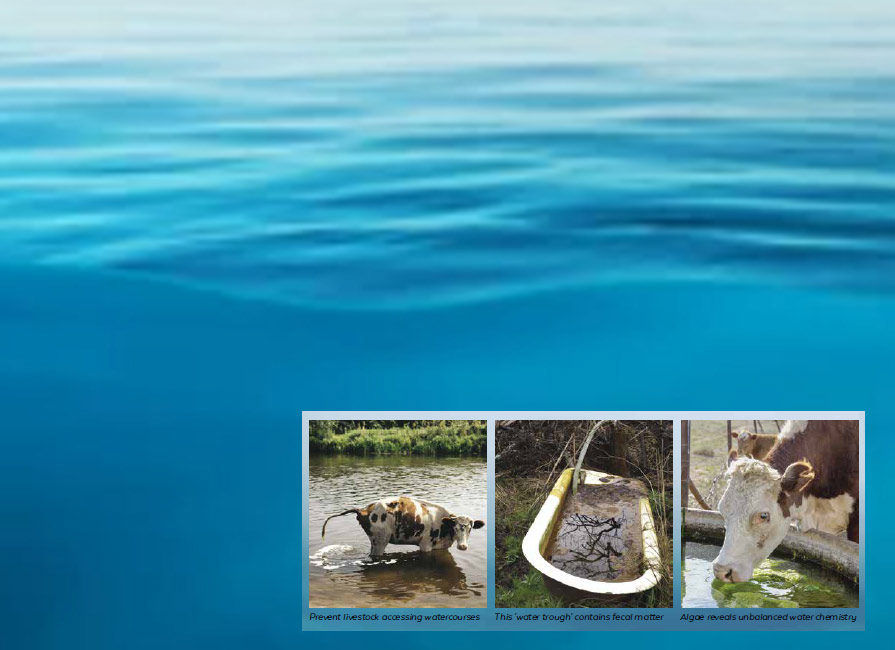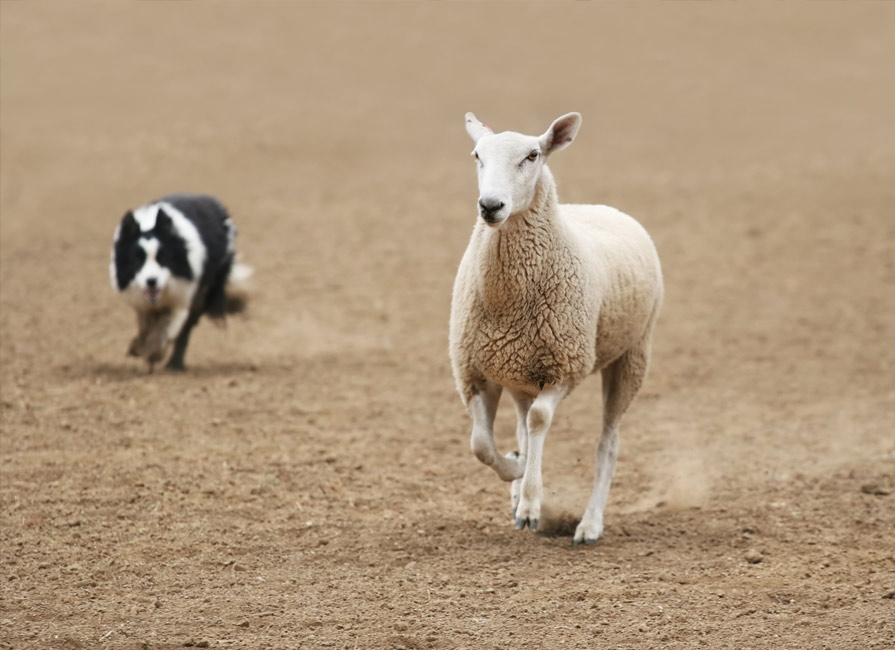Water is arguably the most important nutrient on earth. It is “the universal solvent,” providing…

Why Certification Matters
Consumers need help making ethical purchases. That’s where farm certification comes into its own …
Consumers are continuously bombarded with information about what food they should eat and where they should buy it. While much of the guidance is sound and reasonable, some of it is wildly inaccurate—or just downright unrealistic.
Unrealistic expectations
A phrase you’ll often hear is: “Before you buy any food you should visit the farm.”
Buying direct from a farm shop, veg box or at a farmers’ market is something we wholeheartedly encourage. Not only does the food usually represent great value for money—particularly for the quality on offer—but supporting local farms keeps your money circulating in the local economy.
But is it realistic to expect every shopper to have the time and ability to actually visit every farm before they buy any food—let alone the expertise and knowledge to properly assess what they see when they get there?! Of course not.
While we welcome the growing number of consumers who are taking steps to understand how their food is produced, the assertion that everyone must personally visit a farm before you can trust the food—and that, by implication, the average person has the necessary technical expertise to assess whether a farm meets high-welfare or sustainable production standards—is disingenuous on both counts.
A visit to a working farm, particularly where you can speak to the farmer, is a fantastic opportunity and something every schoolchild should experience as part of the curriculum. And you don’t have to have a PhD in animal welfare or environmental sustainability to have an opinion on whether a farm is doing a reasonable job or not. If the average member of the public was to go behind the closed doors of an intensive indoor pig operation it is unlikely that it would meet their expectations of how a pig should be raised.
Animal welfare expertise
But what if that same person visited a farm and saw pigs on pasture on a fine summer’s day? By comparison, they may assume this represented an idyllic, high-welfare farm operation. Yet would this fleeting, untrained assessment really provide enough information for the average person to decide whether or not to buy food from this farm?
Unfortunately, a keen interest in where your food comes from and a willingness to get your boots dirty isn’t always enough. Let’s take a closer look at those pigs.
Are they on pasture in a system where each pig has the right amount of space to allow it to exhibit natural behaviours? Did you happen to see if the farmer provided a wallow and sufficient shade from the hot sun? Did the pigs have access to fresh drinking water? What about a diet that meets their nutritional needs depending on their life stage? Are the animals regularly moved to prevent the build-up of disease or parasites? Was the farmer growing the right varieties of vegetation for the time of year? Did you notice if the pigs had metal rings through their noses to stop them from rooting the ground up?
The point is that visiting the farm may well tell you the pigs were outside at the time you visited (which is a big plus), but it won’t tell you everything—especially if you don’t really know what to look for.
For example, research shows that ringing a pig’s nose potentially causes pain and distress and is specifically carried out to prevent the pig from doing what it naturally wants to do—to root in the soil. On this basis, ringing pigs is a practice that most conscientious consumers might not want to support. Yet many people probably would not have noticed the nose rings, let alone fully understood the welfare implications even if they did.
This is not meant as a criticism; it’s just that the necessary ability and expertise to properly assess livestock management practices and environmental management is not something you will pick up on a family walk around the farm on a summer’s day
Is ‘local’ always best?
Similarly, while making the effort to support local farmers and buying ‘local’ products is highly commendable, it’s worth remembering that the term ‘local’ does not automatically guarantee good farming practices. In fact, the term ‘local’ offers no guarantees about, say animal welfare or good environmental management whatsoever. Buying locally produced food might mean that you’re more able to speak to the farmer or visit the farm, but this may not necessarily help consumers make truly informed decisions. And don’t be fooled by the recent attempts by the supermarkets to sell products using a friendly sounding farm name on the label. It means nothing.
Finally, if we really care about sustainability, is it really desirable to expect every single consumer to jump in a car (if they even have one and can afford the time) and drive out to the farm each week to check on the animals before making every food purchase? No.
Certification matters
So, what is the answer? A visit to a local farm—and the opportunity to speak to the farmer—will give you a good idea of the kind of farming that’s going on. Farms that open up to the public are a fantastic educational resource for the family—and are they desperately needed. According to a 2017 survey from the British Nutrition Foundation, one in ten 14 to 16-year-olds think tomatoes grow underground and 6% believe dairy cow produce eggs. A similar survey conducted by The Prince’s Countryside Fund in 2017 to highlight the lack of rural knowledge in some young people found that one in eight 18 to 24-year-olds had never seen cattle in real life, while more than half (54%) didn’t know strawberries grow in summer.
If you really want to be sure you’re buying meat, eggs and dairy products from farms where high welfare and sustainable management always come first, you need to look for a trusted certification mark. Buying food that displays the Certified Animal Welfare Approved by AGW logo means you can be sure the farm is audited and scored against a comprehensive list of standards by an experienced farm auditor at least once a year. We also vary the time of audit from year to year—and even carry out some unannounced or “surprise” spot inspections—so we can see the farm and the animals in different seasons and weather conditions.
With a growing number of farms across the UK, and in Europe, North America and South Africa, Certified Animal Welfare Approved by AGW serves as the eyes and ears for today’s conscientious consumers. So whether you see it displayed at your local farm shop, farmers’ market or supermarket, you can rest assured it’s the one food label you really can trust.



